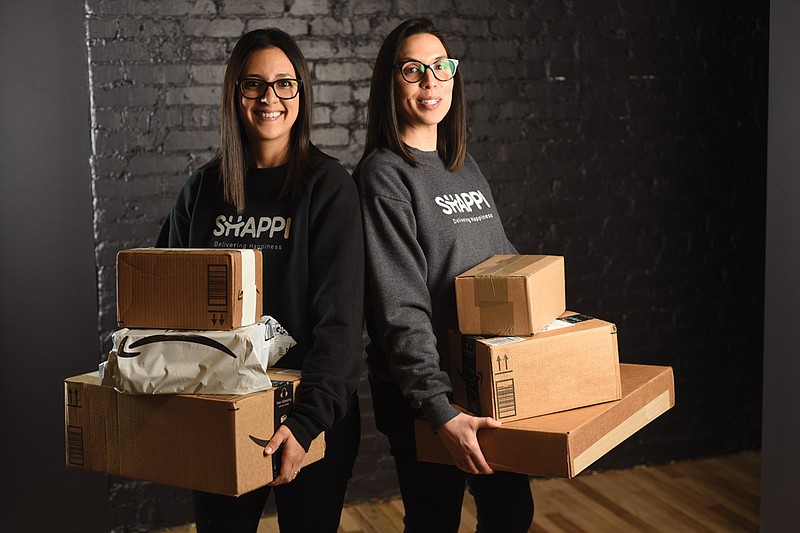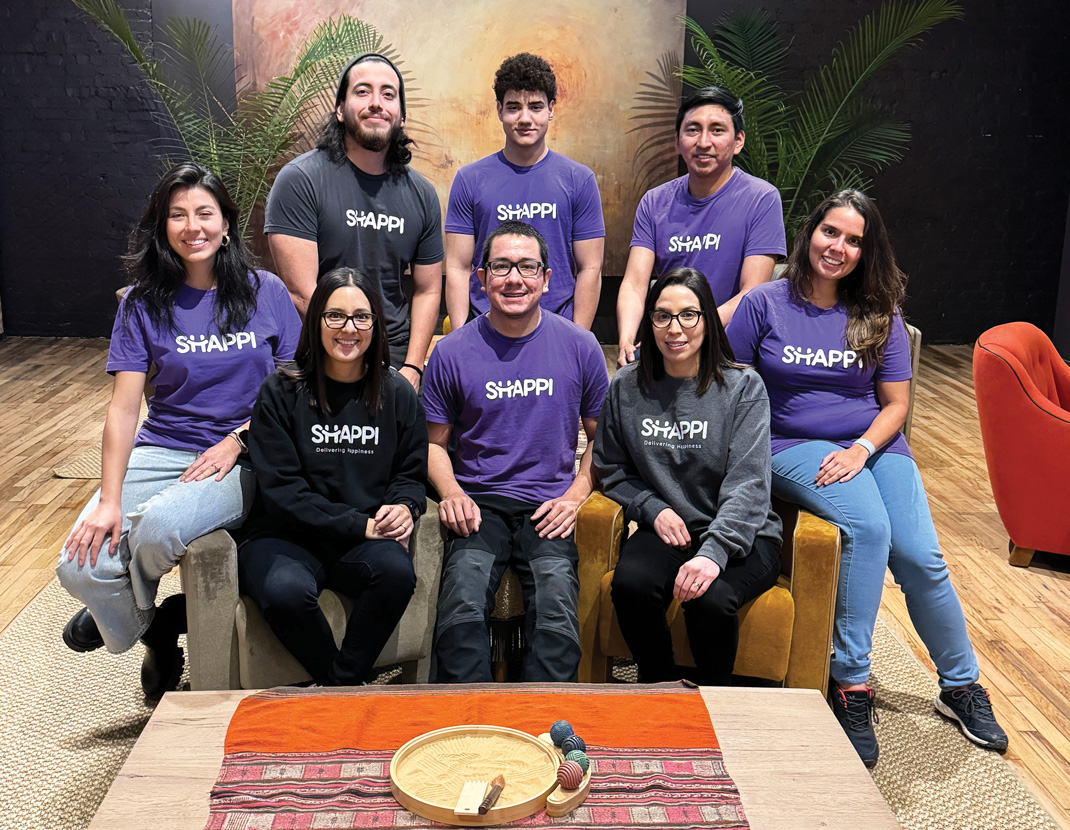It's easy to gripe about the United States Postal Service.
But compared to many countries, most Americans don't realize what a reliable system they have, say Karla and C.J. Valdivieso. For most of Latin America, ordering products online is a gamble. Due to political factors and safety concerns, packages can arrive months late; and sometimes they don't arrive at all.
Frustrating on a personal level, it's an even bigger problem for business owners who want to order supplies.
It's also wildly expensive. Often, making a trip to the U.S. is less expensive than having items delivered to a local address.
Growing up in Ecuador, the women experienced the frustration first hand -- the catalyst for the creation of Shappi, an application designed to solve shopping woes for the people of Ecuador.
The idea for Shappi began on an airline napkin, remembers Karla, company CEO. Pronounced SHAH-pee, the name is a creative mash-up of the words "shipping," "shopping" and "happy."
"I just started writing everything down," she says. "When I presented all this to C.J., she had even bigger ideas. And combined, it's led to all this."
"At our first office, there was no space on the walls left to write because we had written so many ideas. We were just brainstorming nonstop. 'How is it going to work? Where are we going with it?'"
The problems Shappi is tackling aren't unique to Ecuador, the women say. Outside the U.S., millions struggle to access products, including physical goods and e-commerce items, that are easily purchased here.
For example, in South America, there are two Apple stores on the entire continent, and both are in Brazil. Products sold there are pricier than the same items found in the U.S.
"The main problem is that, when we want products from the U.S. ... requesting things from family and friends has become a part of our cultural DNA," says Karla. "We've been doing it this way since travel was invented."
But relying on family and friends is a limited process. To ask a favor, one first needs to know when and where they might be traveling.
And Shappi helps with that.
Here's how it works: Consumers in Ecuador log into Shappi to acquire a U.S. locker. Using this locker, they can buy items from any U.S. e-commerce site, with the delivery directed to Shappi's warehouse in Chattanooga. Shappi then receives, documents and verifies the items, providing buyers with photo proof of the arrival, before assigning the merchandise to one of the verified travelers who work for the company.
Shappi also has warehouses in Ecuador, where their travelers arrive with the items, and the goods are accounted for once again. Within 24 hours, final deliveries are made to more than 20 cities.
"I already knew this (delivery system) was a pain point, but no one had attempted to create a new section to the logistics space. And I wanted to create the first 'travelogistics' solution," says Karla, using the term she says she and C.J. coined together.
About 80% of Shappi's roughly 3,000 certified travelers, the majority of whom live in Ecuador, are able to make a living through the company, she says. While many had taken trips as side gigs in the past, Shappi has created an industry that allows them to work as full-time travelers.
On average, travelers transport about 100 items per trip, which is usually two pieces of luggage at about 50 pounds each. Since 2022, she estimates Shappi has delivered more than $3.5 million in products.
Guillermo Vizcaino, a Florida resident with ties to Ecuador, has taken about 21 trips as a Shappi traveler.
Now, before he makes the trek to South America, he checks the Shappi app first.
Vizcaino says he typically earns between $400 to $1,000 per trip, depending on what sorts of items he chooses to take. Electronic goods like cell phones and gaming equipment tend to pay higher than items like books or dresses.
"I was traveling a lot, and had extra space in my luggage. I thought maybe I could help some people. It worked out perfectly," he says. "It's pretty cool, because in that way I'm making extra money super easy.
"You could make a living if you live in Latin America, but maybe not the U.S. It's part of the gig economy. ... You wouldn't be able to do it every day."
He reiterates the differences between the U.S. and Latin American mail delivery: "The mail system doesn't work as well in Ecuador as it does in the U.S. You can order from Amazon, but it may never reach your address. And it's going to be really expensive -- maybe $200 or $300 in shipping," he says. "For Ecuador, the closest Amazon facility is in Mexico or Brazil, but that's still really far.
"Ordering from Amazon isn't as cost effective, and it's really annoying not to get your order, so you'd especially not want to take the risk on expensive items that could get lost or take months to arrive."
But with Shappi, items arrive within two weeks.
"This isn't something you think about in the U.S. You want something, you just go online, order and there's probably free shipping. But if you live in South America, that's not something that's going to happen," says Vizcaino. "And Shappi is taking care of that.
"This is a chance for Latin American people to get the things they want, and for the people who are traveling to make extra money while they're doing it."
When it comes to the growth of their company, Karla and C.J. are setting their sights high, with goals to create "the biggest 'travelogistics' solution company in the world." They've already got their eyes on the next prize: expansion into the country of Colombia.
One major advantage their company has that gives them the competitive edge against other logistics companies such as United Parcel Service, the women say, is that Shappi will deliver refurbished technology, which they estimate to be a $200 billion a year industry -- and much less expensive to purchase in the U.S. than it is in Latin America.
"They cannot get this with any other (delivery) service," she says. "We are providing a unique solution to a big problem."
READ MORE
* Chattanooga companies maximize market share through strong international business ties

